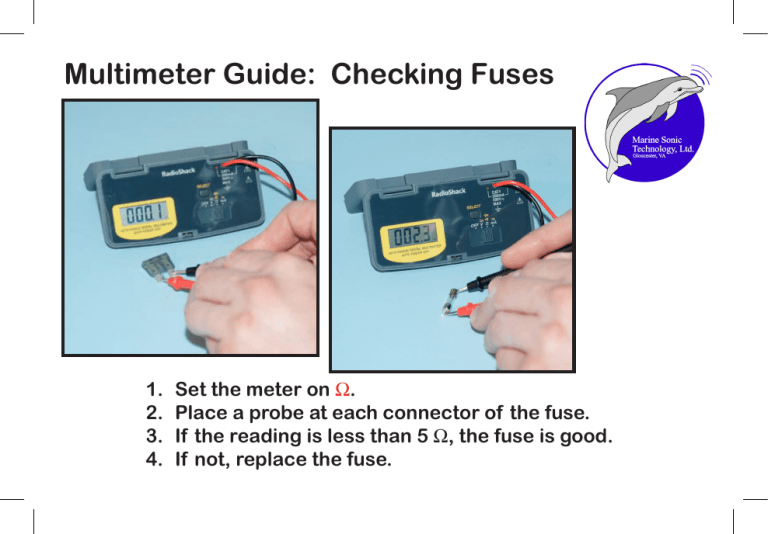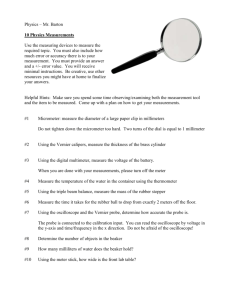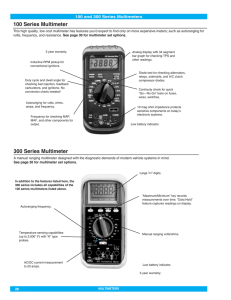Multimeter Guide: Checking Fuses
advertisement

Multimeter Guide: Checking Fuses 1. 2. 3. 4. Set the meter on Ω. Place a probe at each connector of the fuse. If the reading is less than 5 Ω, the fuse is good. If not, replace the fuse. Multimeter Guide: Checking for Damage 1. Set the meter on Ω. 2. Hold a probe on pin 1, then touch each of the other pins with the other probe. 3. Check every pin and pin combination the same way. 4. The reading should be OF. 5. If not OF, contact Marine Sonic Technology, Ltd. for repair. Multimeter Guide: Checking for Broken Wires Breakaway cable: Tow cable end – STU end 1. Set the meter on Ω. 2. Place a small paperclip in one end and touch the paperclip with a probe, then touch each of the pins on the other end with the other probe in the following sequence: 1 to A 4 to D 2 to B 5 to E 3 to C 6 to F All others not used. 3. The reading should be close to 0 Ω. 4. If not, replace the breakaway cable. Multimeter Guide: Checking for Broken Wires Tow cable: Dry end – Wet end 1. Set the multimeter on Ω. 2. Place a small paperclip in one end and touch it with a probe, then touch each of the pins on the other end with the other probe in the following sequence: 1 to 1 4 to 4 2 to 13 5 to 5 3 to 3 6 to 6 All others not used. 3. The reading should be close to 0 Ω. 4. If not, contact Marine Sonic Technology, Ltd. for repair. Multimeter Guide: Checking for Broken Wires Power cable: Connector – Alligator clips 1. Set the meter on Ω. 2. Hold a probe on one clip, then insert the other probe into each connector at the other end of the cable in the following sequence: 1 to Green 2 to Red 3 to Black 3. The reading should be close to 0 Ω. 4. If not, replace the power cable. Multimeter Guide: Checking Battery Voltage 1. Set the meter on V. 2. Hold the red probe on the plus (+) terminal, then touch the black probe to the negative (–) terminal. 3. The battery voltage should read 9 to 24 V. 4. If not, replace or charge the battery.





